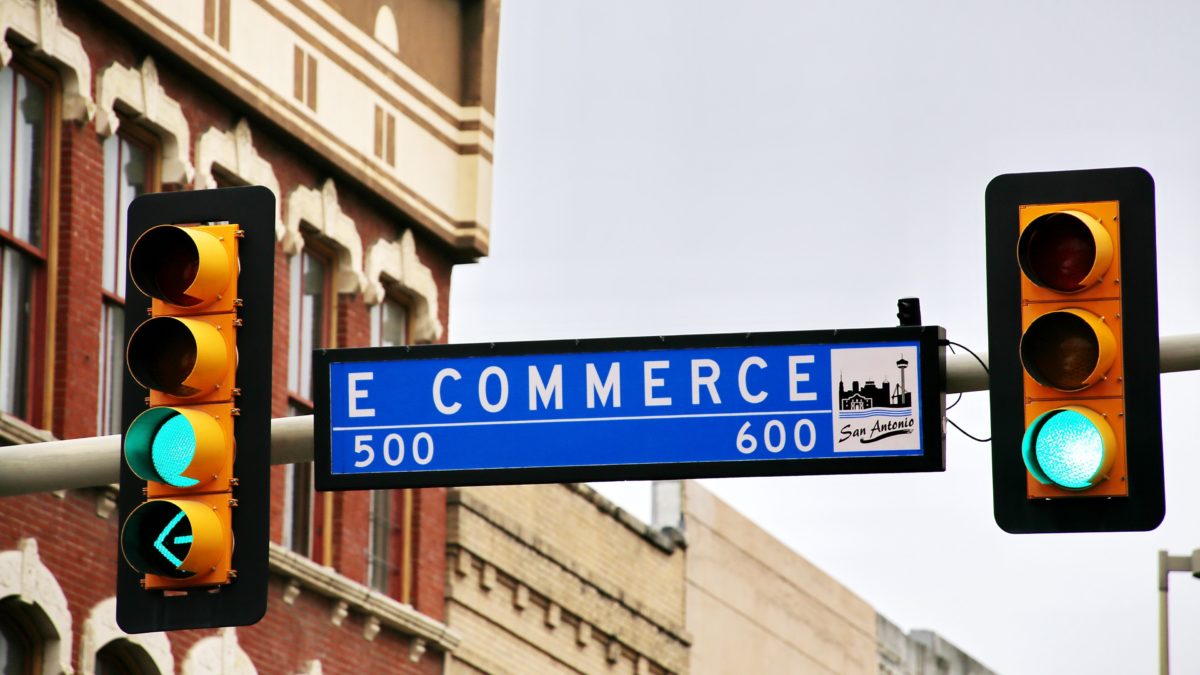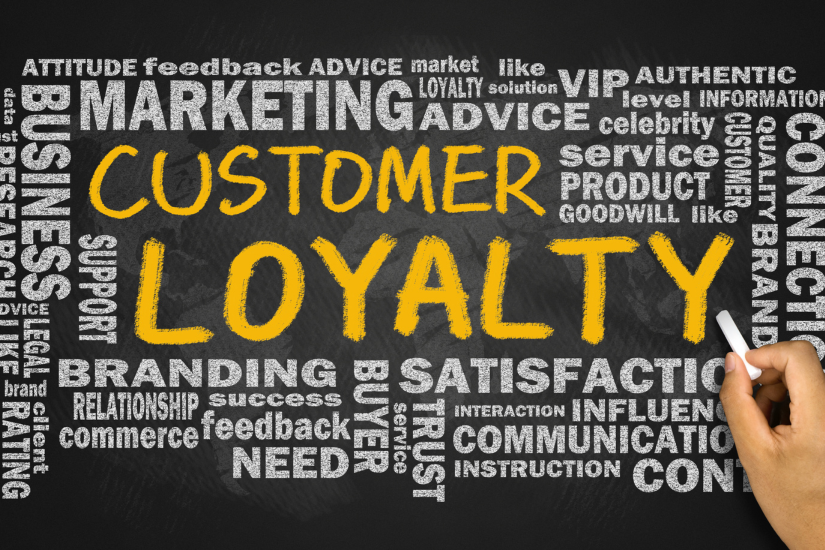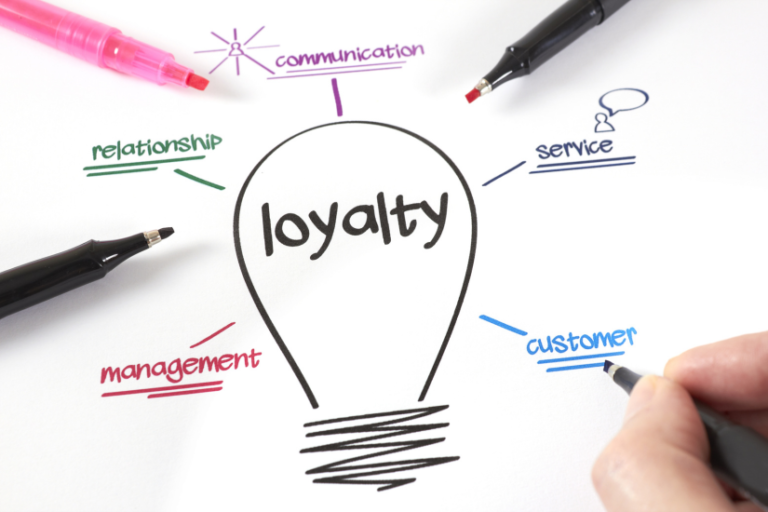
Introduction: E-commerce is rapidly growing, and businesses face more competition than ever. Companies must maximize conversions to stand out and succeed in this competitive market. This blog will discuss the importance of personalization, building customer loyalty, and utilizing AI-powered chatbot technology in e-commerce. We will explore best practices and provide case studies to help businesses overcome common challenges and increase conversions. “Whether you’re a small business just starting or a large enterprise looking to optimize your e-commerce strategy, this blog will provide valuable insights and actionable tips to help you maximize conversions and succeed in the e-commerce market.”
Personalization: What is Personalization in E-commerce

Personalization in e-commerce refers to the process of customizing the customer experience to meet the individual needs and preferences of each customer. It’s about understanding your customers and tailoring the shopping experience to their needs. Personalization can be applied in various ways, such as product recommendations, personalized email campaigns, and customized customer service. By utilizing customer data, e-commerce businesses can create a personalized shopping experience that can increase conversions and customer satisfaction and ultimately drive business growth.”
Importance of Personalization in E-commerce
Personalization is becoming increasingly important for e-commerce businesses as consumers are becoming more demanding and have higher expectations for their online shopping experience. Personalization can help e-commerce businesses stand out and increase conversions by making customers feel valued and understood. When customers think that a company understands their needs, they are more likely to trust and be loyal to that business. Additionally, personalization can also increase customer satisfaction, which can lead to positive word-of-mouth and repeat business.
Personalization Best Practices
- Use customer data to create personalized product recommendations
- Use customized email campaigns to increase customer engagement
- Provide personalized customer service to increase trust and loyalty
- Use customized content and messaging on the website and social media
- Use personalization in packaging and shipping.
Regarding personalization, it’s essential to use customer data to create a more personalized experience. It can be done by using customer data to recommend products, using customized email campaigns, and providing personalized customer service. Additionally, using personalized content and messaging on websites and social media can also help to increase conversions. Another way to personalize the customer experience is by using personalization in packaging and shipping, such as adding a personal note or a free sample of a related product.
Personalization Case Studies
- Amazon’s personalized product recommendations – Amazon uses customer data to recommend products to customers based on their browsing and purchase history. This customized approach has helped Amazon increase conversions and drive sales.
- Netflix’s personalized content – Netflix uses customer data to recommend TV shows and movies to customers based on their viewing history. This customized approach has helped Netflix increase customer engagement and retention.
- Birchbox’s personalized packaging and shipping – Birchbox, a subscription-based beauty and grooming service, use personalization in their packaging and shipping by customizing the box with the customer’s name and adding a personalized note. This approach helped Birchbox increase customer satisfaction and loyalty.
In conclusion, personalization is becoming increasingly important for e-commerce businesses as customers are becoming more demanding and have higher expectations for their online shopping experience. Personalization can help e-commerce businesses stand out and increase conversions by making customers feel valued and understood. Utilizing customer data allows e-commerce businesses to create a personalized shopping experience that can increase conversions and customer satisfaction and ultimately drive business growth.
Building Customer Loyalty

What is Customer Loyalty in E-commerce
Customer loyalty refers to a customer’s emotional attachment and commitment toward a brand or business. It is the degree to which a customer is willing to remain loyal to a brand and continue purchasing from it over time. Building customer loyalty is crucial for e-commerce businesses as it can drive repeat purchases and increase revenue. Repeat customers tend to spend more and are less likely to switch to a competing brand.
Importance of Customer Loyalty in E-commerce
In today’s digital age, customers have more options than ever before. With the rise of e-commerce, customers can easily switch to a competing brand with just a few clicks. Building customer loyalty is essential for e-commerce businesses as it can increase customer retention, drive repeat purchases, and ultimately increase revenue. Repeat customers are more profitable than new customers, who are likelier to make larger purchases and refer their friends and family to the brand.
Customer Loyalty Best Practices
- Offer incentives for customers to refer friends and family
- Offer rewards for repeat purchases
- Create a loyalty program that rewards customers for their loyalty
- Send personalized thank you emails to customers
- Offer exceptional customer service
When building customer loyalty, it’s important to remember that it’s not just about offering discounts and deals but also about creating a positive experience for the customer. By incentivizing customers to refer friends and family, businesses can encourage them to return to their stores. Additionally, companies can drive repeat business by offering rewards for repeat purchases. Creating a loyalty program that rewards customers for their loyalty can also help increase customer retention. Sending personalized thank-you emails to customers can help increase trust and loyalty. And lastly, offering exceptional customer service can help increase customer satisfaction and loyalty.
Customer Loyalty Case Studies

- Starbucks’ loyalty program – Starbucks’ loyalty program rewards customers for their loyalty by offering free drinks and discounts. This program has helped Starbucks increase customer retention and drive repeat business.
- Amazon Prime – Amazon Prime is a loyalty program that offers customers free shipping and other benefits. This program has helped Amazon increase customer retention and drive repeat business.
- Sephora’s Beauty Insider program – Sephora’s Beauty Insider program rewards customers for their loyalty by offering free samples and discounts. This program has helped Sephora increase customer retention and drive repeat business.
In conclusion, building customer loyalty is essential for e-commerce businesses as it can drive repeat purchases and increase revenue. Repeat customers are more profitable than new customers as they are more likely to make larger purchases and refer friends and family. When building out customer loyalty, it’s essential to create a positive experience for the customer by offering incentives for referrals, rewards for repeat purchases, and exceptional customer service. By implementing these practices and creating a loyalty program, e-commerce businesses can increase customer retention and drive repeat business.
Utilizing AI-powered Chatbot technology

What is AI-powered Chatbot technology?
AI-powered chatbot technology uses artificial intelligence to create chatbots that can conversationally interact with customers. These chatbots are designed to mimic human conversation and can provide instant customer support, upselling opportunities, and create a personalized shopping experience.
Importance of AI-powered Chatbot technology in E-commerce
Customers expect immediate responses to their questions and concerns in today’s fast-paced world. With the rise of e-commerce, customers expect the same level of service online as they would receive in a physical store. AI-powered chatbot technology can help e-commerce businesses increase conversions by providing instant customer support, upselling opportunities, and creating a personalized shopping experience. It can help companies to improve customer satisfaction and ultimately drive business growth.
Best Practices for Utilizing AI-powered Chatbot Technology
- Use chatbot technology to provide instant customer support
- Use chatbot technology to increase upselling and cross-selling opportunities
- Use chatbot technology to create a personalized shopping experience
- Regularly train the chatbot with new data to improve its performance
- Integrate chatbot with other channels (e.g., WhatsApp, Facebook Messenger)
- Measure and analyze chatbot performance to improve over time
When it comes to utilizing AI-powered chatbot technology, it’s important to remember that it’s not just about providing instant customer support but also about creating a personalized shopping experience. Businesses can use chatbot technology to provide instant customer support to ensure customers get the help they need on time. Additionally, companies can increase revenue by leveraging chatbot technology to create upselling and cross-selling opportunities. Using chatbot technology to create a personalized shopping experience can help increase conversions. Regular chatbot training with new data can improve its performance and make it more efficient. Integrating chatbots with other channels like WhatsApp and Facebook Messenger can increase reach and enhance customer engagement. Additionally, regularly measuring and analyzing chatbot performance can help businesses identify areas for improvement and optimize chatbot performance over time.

Case Studies of AI-powered Chatbot Technology
- Saks Fifth Avenue’s chatbot – Saks Fifth Avenue’s chatbot uses AI-powered technology to provide instant customer support, help customers find products, and create a personalized shopping experience. The chatbot also provides customized product recommendations based on customers’ browsing and purchase history.
- Nordstrom’s chatbot – Nordstrom’s chatbot uses AI-powered technology to provide instant customer support, help customers find products, and create a personalized shopping experience. The chatbot also uses natural language processing to understand customers’ queries and provide relevant product recommendations. The chatbot also offers personalized styling suggestions based on customers’ browsing and purchase history.
AI-powered chatbot technology can help e-commerce businesses increase conversions by providing instant customer support, upselling opportunities, and creating a personalized shopping experience. Utilizing best practices like instant customer support, increasing upselling and cross-selling opportunities, creating a customized shopping experience, regular training, integrating with other channels, and measuring and analyzing performance can help businesses optimize chatbot performance and drive business growth.
Conclusion: In conclusion, e-commerce businesses must focus on providing a personalized experience, building customer loyalty, and utilizing AI-powered chatbot technology to increase conversions and drive business growth. Oodles, an all-in-one AI-powered chatbot solution for Shopify merchants, can help businesses achieve these goals by providing all the features that e-commerce businesses need to increase conversions and drive business growth. Oodles offers a chatbot that can provide instant customer support, improve upselling and cross-selling opportunities, and create a personalized shopping experience. It also provides

